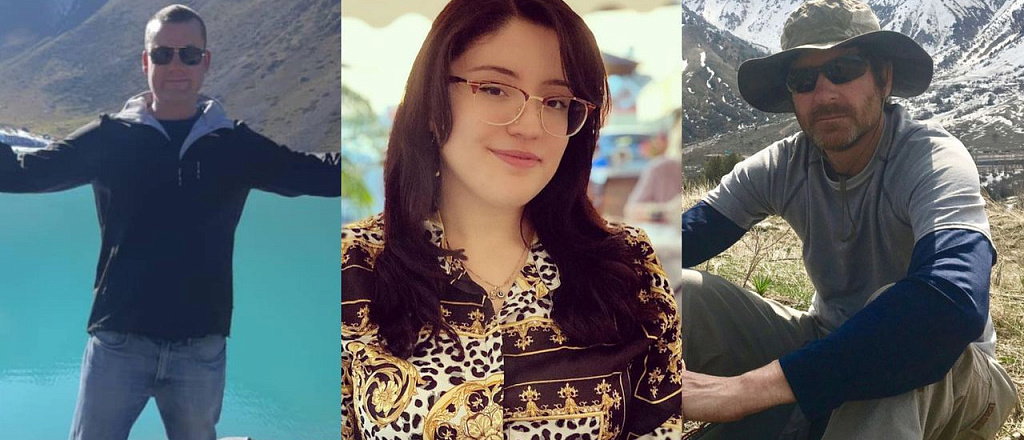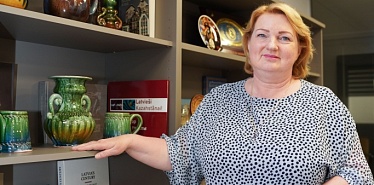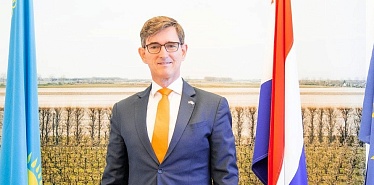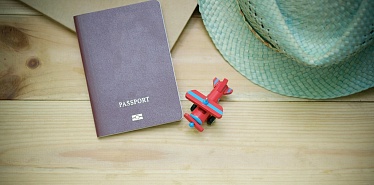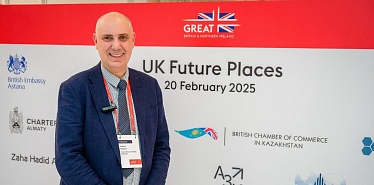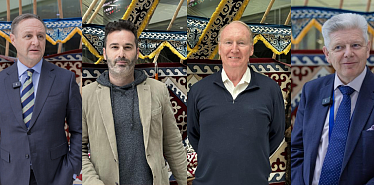Simon Tottman, government worker, Bishkek, @roaming_manas
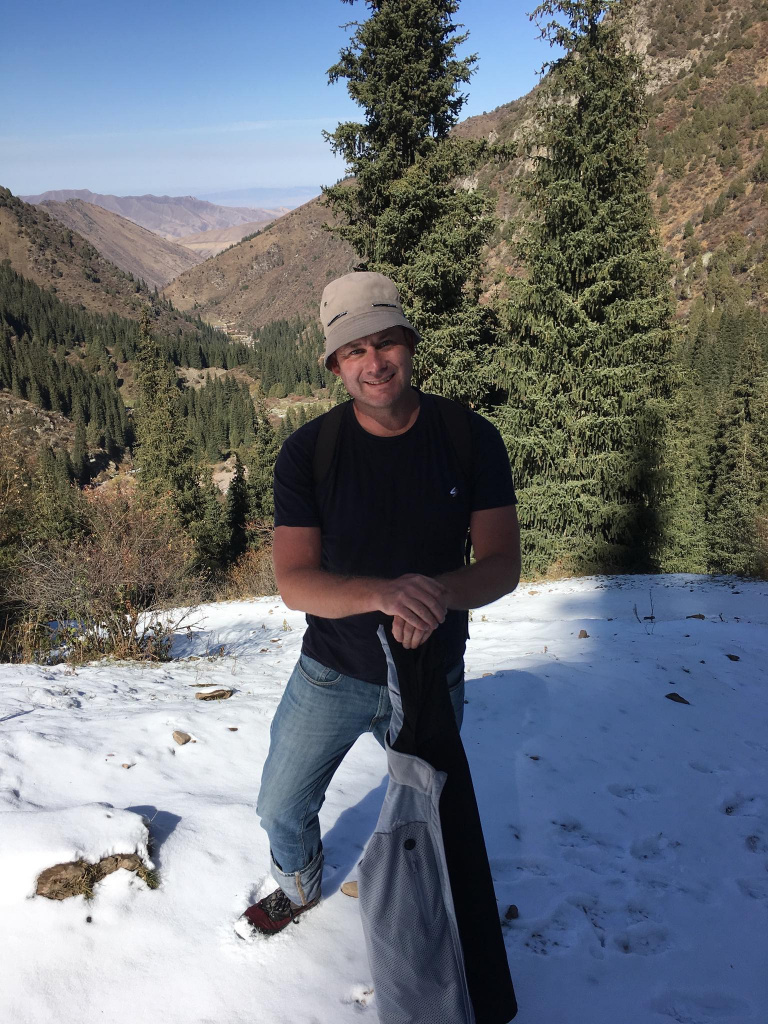
I am from London, the UK. I used to work for the government there. I have lived in Kyrgyzstan for two years. I had been here three times on Holiday before and each time I came the beautiful nature stole a piece of my heart. Also I used to drive past a piece of graffiti every day in London on a motorway bridge which said “Why do I do this everyday?”. One day I thought damn it, walked out of my job, rented out my flat and moved to Kyrgyzstan. Not exactly well planned. Spur of the moment decision.
About first impression
My first impression of Kyrgyzstan was the beauty of the mountains. As we flew into Manas airport the sun was rising and I was liked an eight year boy. Nose pressed against the window absolutely mesmerized by the early morning sun hitting those amazing snow capped mountains.
About difficulties
Main difficulties would be with language. But more people here speak English than I thought. They always want to practice with me and are generally very kind. Oh the traffic police love to take bribes from me, so my negotiating skills have improved exponentially.
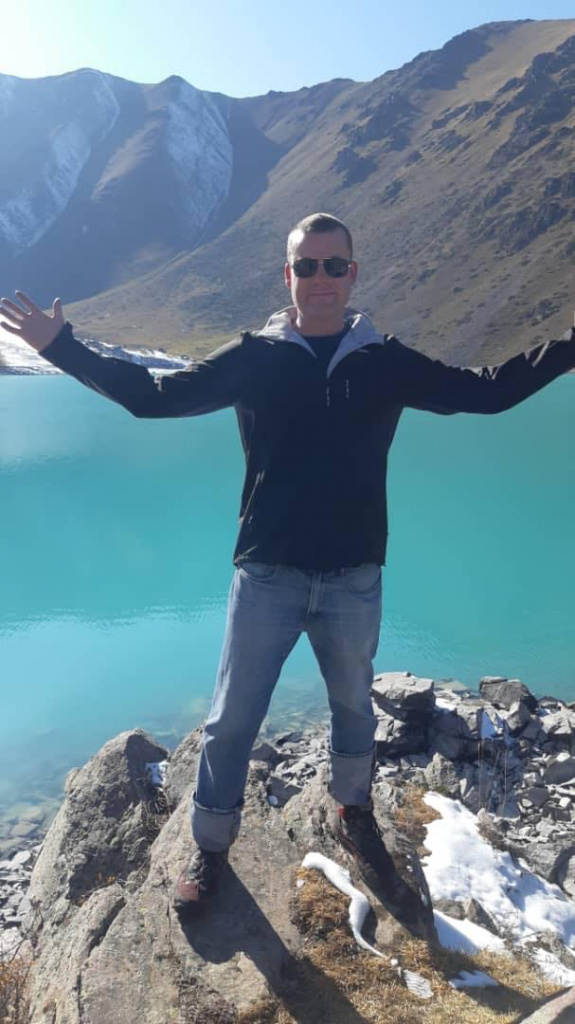
About differences
Apart from the police constantly begging for money, people here some much more polite and respectful. It almost seems quite innocent. There is not the casual violence, problems with drugs and junkies which we have back home.
About similarities
They love football. Especially English football, so going to the pub to watch it with a bunch of Kyrgyz boys is exactly the same as back home. Along with the banter and drinking.
About people
Family is so important here, in fact, it is everything. Apart from that in Bishkek people live in quite a similar way to any other city, it is when you go to the countryside and into the mountains you see the real difference. Living in the Yurts all summer, taking care of the animals in the Jailoo. There are no modern conveniences.
What I like there
I like the strength of family bonds. I like that when, for example, someone’s car breaks down, everyone stops to help. I like the respect children have for adults and adults for the grandparent generation.
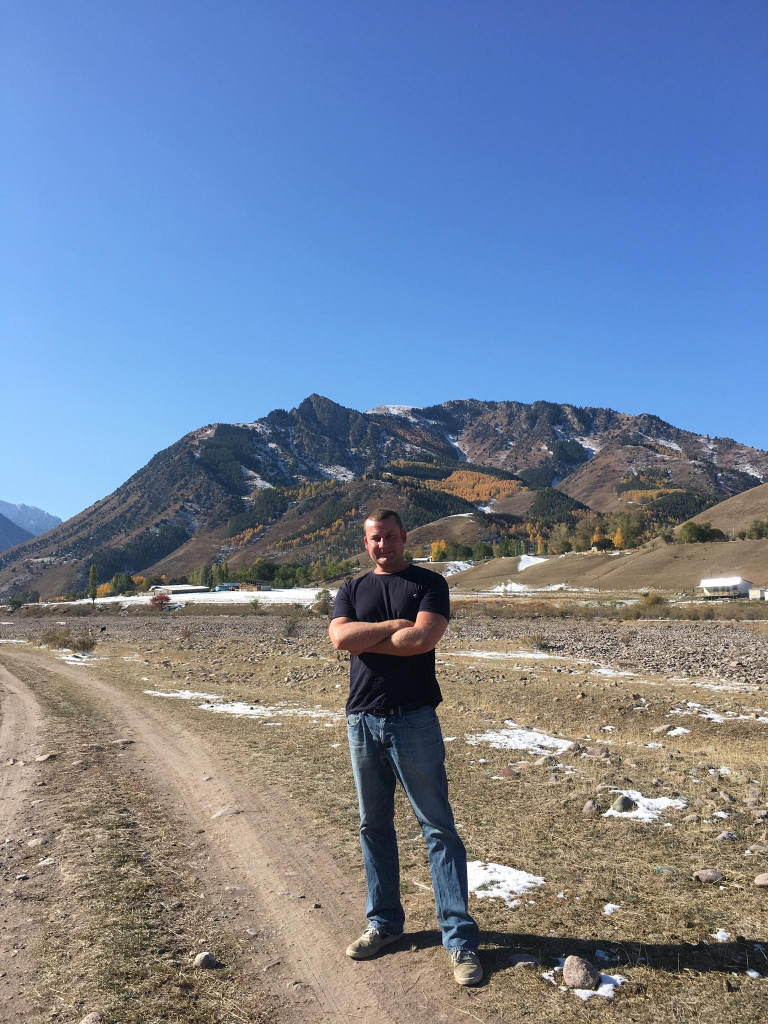
Interesting story
But meeting an Uzbek international footballer on a flight to Osh, who helped the old people with their luggage, then insisted on helping me find my hotel when various taxi drivers could not find it.
I just cannot imagine an England international footballer doing this.
Elisa Boschetti Hernandez, Dushanbe, teacher, @elisa.bonu
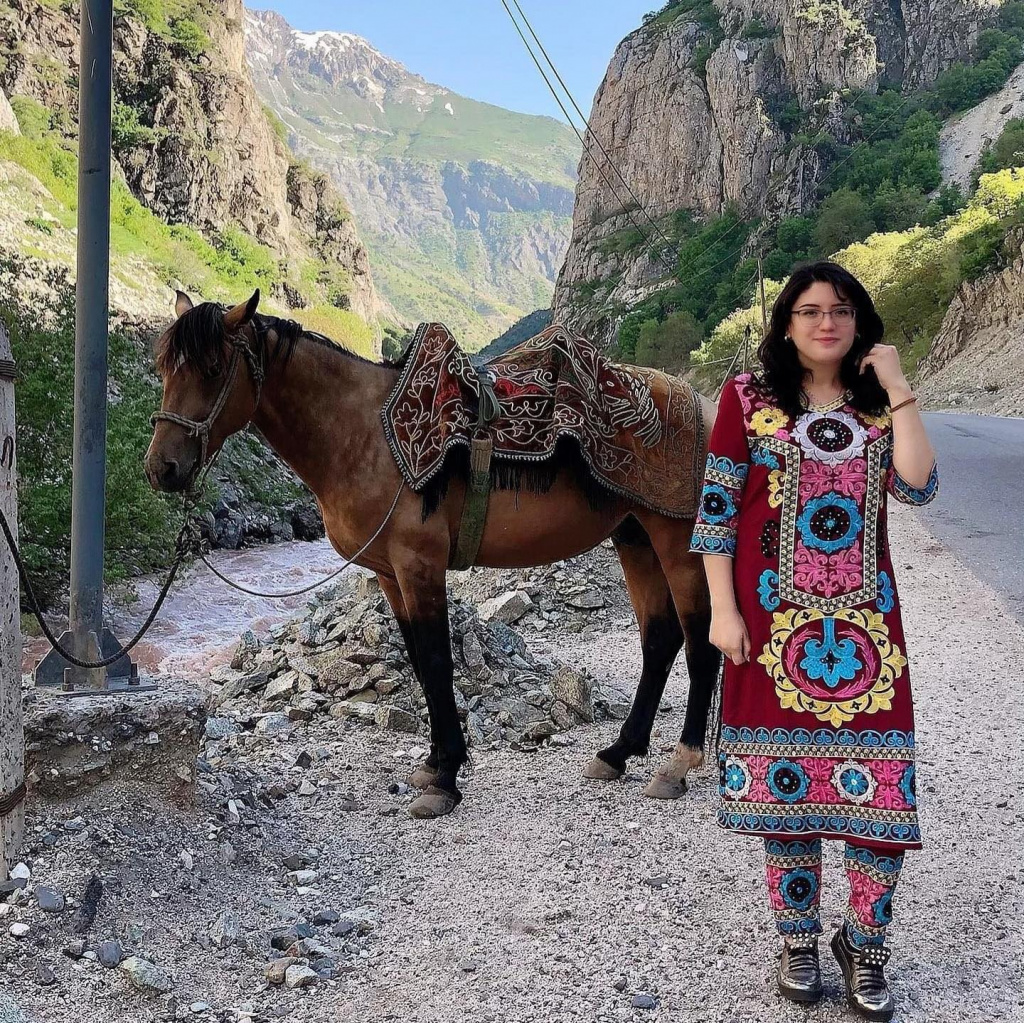
I am working as a teacher in Dushanbe, Tajikistan. I have taught in Kyrgyzstan and Kazakhstan as well. I love Central Asia and its languages and cultures. I have lived here a little more than one year. In March 2019, I visited Tajikistan during Navruz. I fell in love with the country and decided to apply for jobs there. In August 2019, I moved to Dushanbe and started working at an international school.
About first impression
My first impression was beautiful landscapes, friendly people, and delicious fruit.
About difficulties
The main problem here is the internet. This is probably the most common complaint I hear from other foreigners. It is more expensive than the internet in Kyrgyzstan and Kazakhstan and it is slower.
The food is really delicious in Tajikistan, but visitors should take the usual precautions before eating anything. Ask friends for recommendations. I have had my fair share of questionable “Sambusas” on the street; usually nothing happens, but occasionally I end up with an IV in my arm.
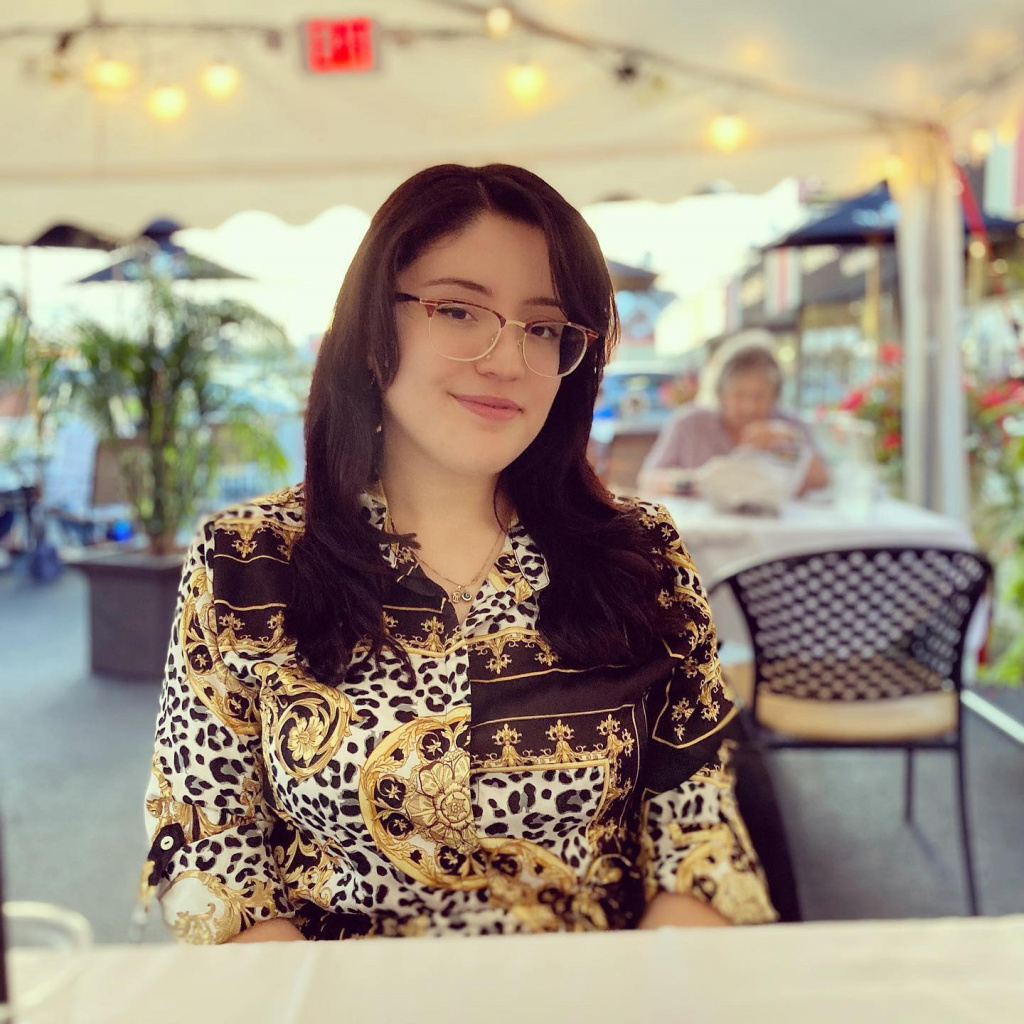
About differences
In Dushanbe there is construction everywhere. It seems like there are new buildings being built on every corner. They work late into the night, so if you live near a construction site, you will eventually get used to the noise.
About similarities
In Tajikistan, people think more about the community as a whole, while people in the US are more “individualistic”. Although I was born in the US, most of my family comes from Latin America and Italy, and I think those cultures are really similar to Tajik culture. People are very family-oriented and they love their parents a lot. They also tend to live with their families as opposed to living alone. When I talk about my family to my Tajik friends, it is clear that we have a lot in common.
About people
Out of all the places I have been in Central Asia, strangers have helped me the most in Tajikistan. As a sign of respect, they refer to you as “apa” sister and more often than not, men give up their seat on the bus to let a lady sit down. I have been to many countries, and that is not always the case. I like how polite people are in Tajikistan.
What I like there
Tajik parties and celebrations are more fun. I love dancing to Tajik music. I feel like people in the US are more self-conscious, especially about dancing in public. When Tajiks hear music, no matter where they are, they can start dancing — I love that.
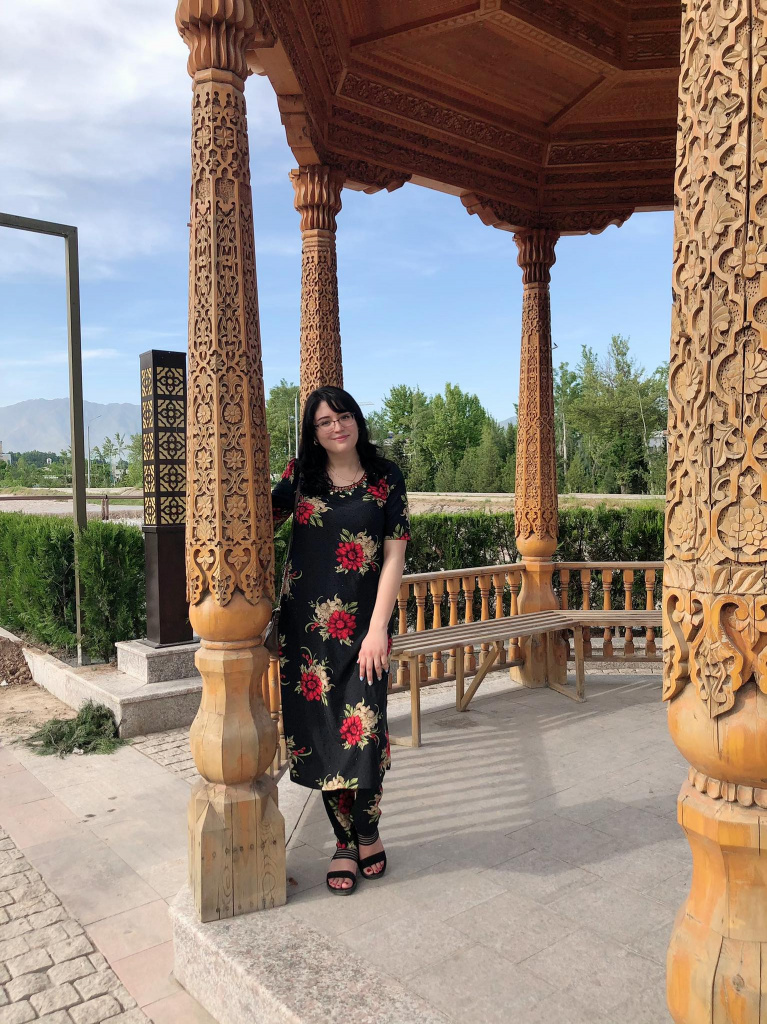
Interesting story
I have dark hair and brown eyes, so I blend in with the local population. I also like to wear Tajik traditional fabrics such as Atlas and Adras. Even though I can speak Russian, I have an accent. People often think I am Tajik, and they scoff at me for speaking incorrectly in Russian. “Why don't you speak Tajik?” they ask. When I tell them “I am not Tajik, I am a foreigner!” they are surprised and a little embarrassed. Once, I attended a wedding in a village outside of Hisor. I honestly felt like I was a member of the family, even though we had never met before. They wanted me to participate in every part of the celebration. I even made a speech on the wedding video to congratulate the newlyweds. It was so cool.
Tony Mayer, Tashkent, teacher
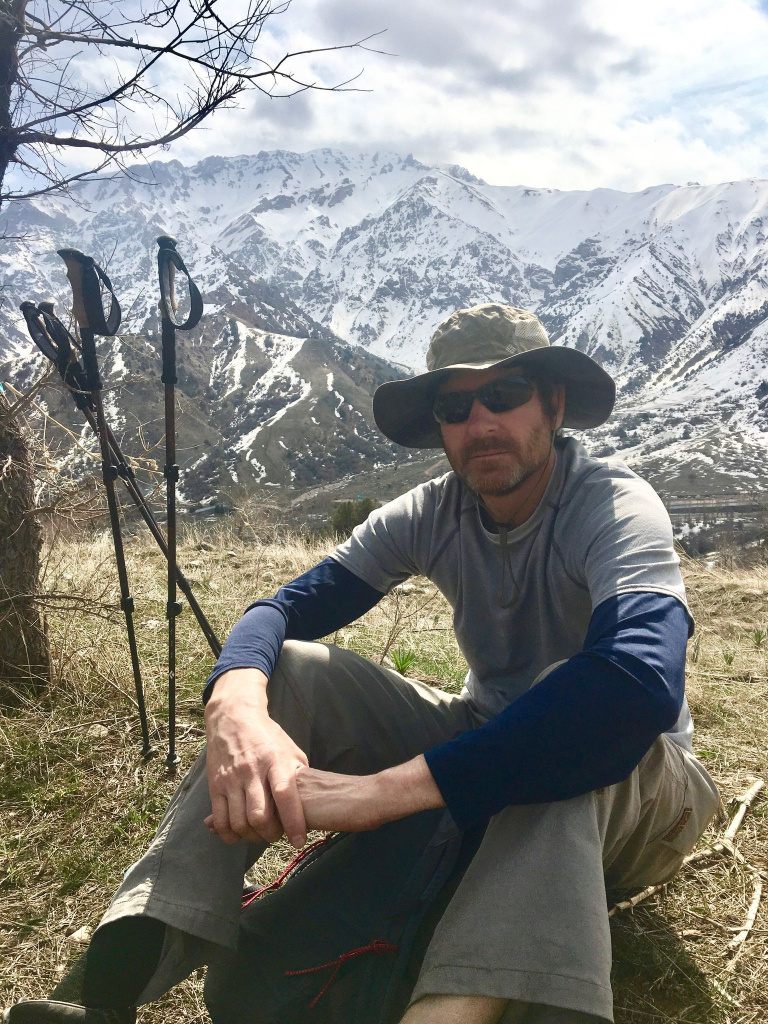
I am from the United States. I grew up in Southern Minnesota, I am the youngest of nine children. I am a teacher. Before becoming a teacher I worked for a government planning agency. When I became tired of that job, I went back to school to get my teaching degree so I could make a living teaching overseas. I have been teaching overseas with my wife now for 11 years. Our first job was in Moldova for two years, then Indonesia for three years, then Bangladesh for one year, then Uzbekistan for two years, then China for two years, finally back to Uzbekistan.
The first time we moved to Uzbekistan was not planned. We no longer wanted to work in Bangladesh, but decided late in the hiring season, so when we were offered a job in Tashkent, we took it without knowing anything about Uzbekistan. My wife loved our two years hear our first time, so when it was time to leave China, she contacted our old school and got our old jobs back.
About first impression
When we got to Uzbekistan the first time, we were amazed at how many cars were exactly the same, in color and type.
About difficulties
We found the money situation crazy, because that was before the economy opened up and the largest bill you could get from the money changers was maybe 5000 sum. So when we would change our USD to SUM, we should have to carry the SUM in bags because sometimes they only had 1000’s. We also had to get our money from ATM’s and could only withdraw USD with our bank cards almost always at international hotels like the Grand Mir and sometimes the ATM’s would run out of USD and we would have to go to all the different ATM’s until we found one with USD so we could pay our rent.
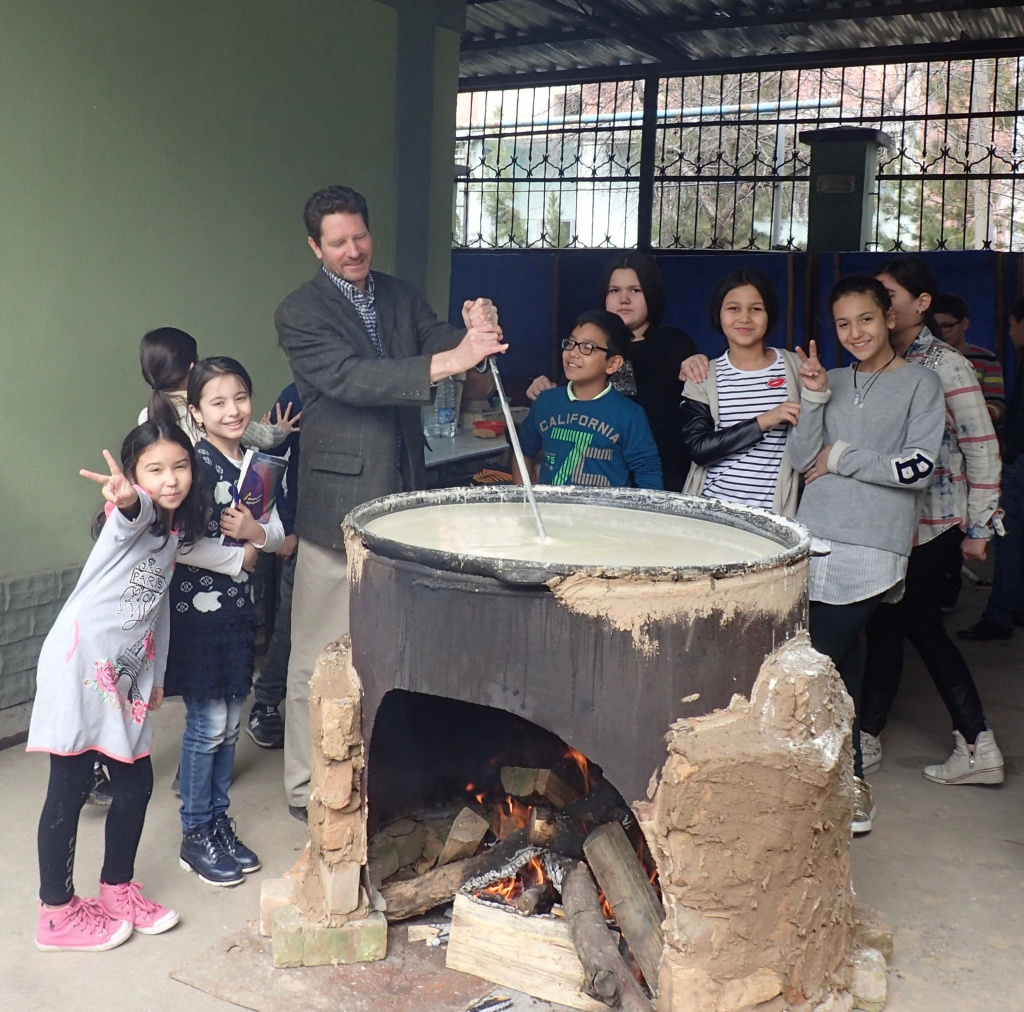
Now that we are back two years later, all of that has changed. There are more cars that are not white, and we can use our bank cards almost everywhere. There are also ATM’s everywhere that we can withdraw SUM from, which was not possible before.
About differences
Uzbeks seem to have embraced the coffee culture of the US. When we first came here there were not as many places that served coffee. Now I can buy a cup of coffee almost everywhere.
About people
They are friendly and most are very honest. I rarely worry about my safety or the security of my things. Many times I have forgotten something of value in a public space and have returned later to find it still there.
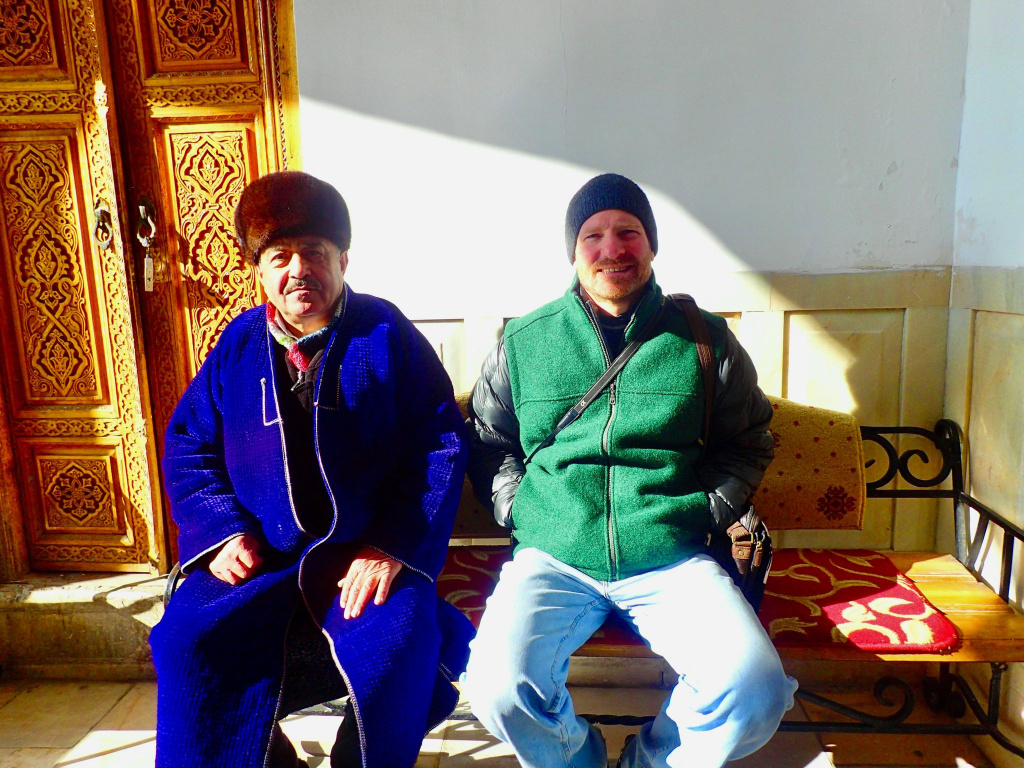
What I like there
The long and rich history that you can still see in the cities such as Samarkand and Bukhara. The open markets such as Askiya and Chorus are nice to visit on occasion. Being able to buy fruit or vegetables on the street on the way home from work. Super cheap street food like Somsa. The mountains are very close and easy to get to compared to my home state in the US that is very far from the mountains.








